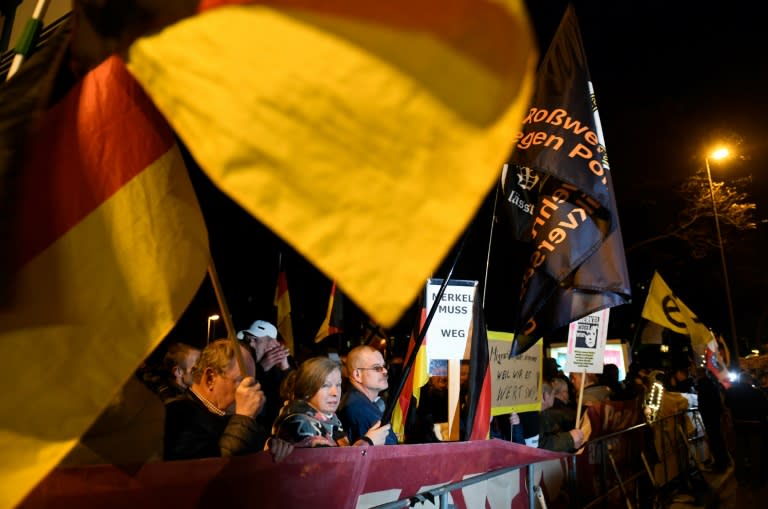Merkel defends refugee policy in protest-hit eastern city
German Chancellor Angela Merkel was forced to defend her refugee policy on Friday in a highly anticipated visit to an eastern city hit by xenophobic protests that shocked the country earlier this year. Merkel spent half a day in the former communist city of Chemnitz meeting residents, but tensions were clear with a group of far-right protesters marching and the city mayor criticising her for taking too long to visit. Saxony state, where Chemnitz is located, has been a stronghold of far-right parties and groups that bitterly oppose Merkel for her 2015 decision to keep German borders open to a mass influx of migrants and refugees. Chemnitz came under the spotlight after the deadly stabbing of a 35-year-old German with Cuban roots on August 26, which sparked protests that quickly escalated into racist mob violence. In an interview with the Sueddeutsche Zeitung newspaper ahead of Merkel's visit, mayor Barbara Ludweg said it would have been "better if the chancellor came immediately after the events in August to hold dialogue with Chemnitzers." About hundred far-right protesters also rallied in the city on Friday, some bearing slogans like "Merkel must go" or "Heil Merkel" At the forum organised by local media Freie Presse, Merkel was repeatedly taken to task over her refugee policy that allowed more than a million asylum seekers into Germany since 2015. - Turkey deal helped - Challenged by a Chemnitz resident who berated her over her policy and her rallying call of "wir schaffen das" (we'll manage it) at the height of the influx, Merkel defended her decision. She said that despite heavy criticisms, she negotiated a deal with Turkish President Recep Tayyip Erdogan that ssw Ankara halting asylum seekers from embarking on the perilous journey to Europe in exchange for financial aid. If she made mistakes, it was not in letting the asylum seekers in, she said, but failing to ensure refugees have a safe way out of their conflict-torn nations, rather than turn to people smugglers. "My error .. lies before the arrival of the refugees," she said. In August, hours after the stabbing, mobs of mainly right-wing extremist football hooligans marched through the city and launched random street attacks against people they took to be foreigners, including an Afghan, a Syrian and a Bulgarian man. A mass rally the next evening drew thousands of far-right protesters, some of whom gave the illegal Hitler salute and clashed with antifascist counter-protesters.



